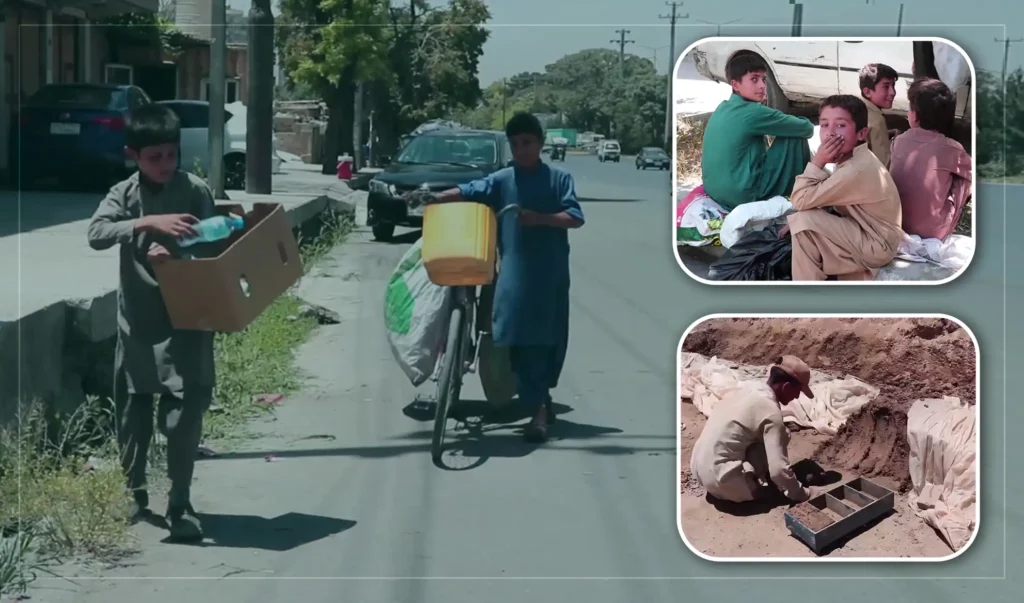KABUL (Pajhwok): Some children involved in hard labour have asked the ‘Islamic Emirate of Afghanistan’ (IEA) government to provide work opportunity for their parents so they will no more have to work.
These children who are not economically sound also demanded the IEA government to provide them with education and training opportunities.
Mostly poverty and orphanage have forced children to get involved in hard labour and stay away from education.
According to the international law hard labour that could harm the mental, physical conditions, growth of child and forced them out of education are strictly forbidden.
In Afghanistan’s Labour Law hard labour on children below the age of 18 was forbidden but in reality many Afghan children are involved in hard labour due to poverty and economic crisis.
Experts also believed that it was the government and international organisations duty to prevent children from hard labour by putting in place practical steps.
Ebadullah and Afsar Ali are the two Afghan children who work in the bricks factory.
Ebadullah, 13, who works in the bricks factory in Dehsabz district, said he led a 10-member family and for their survival he had to work.
He said daily he earned 300 afs and said he was not interested in the work and would prefer to go to school and study but if his other family member work instead of him.
Afsar Ali also work alongside Abdullah in the Bricks factory and asked the IEA government to support them and provide them education facilities so they will not have to work under burning son and hot weather.
Syed Ali Farzad, 11, sells drinking water in the Kart-i-Mamorin area of Kabul and he is the only person in the family to work. He earns up to 200 afs.
Farzad is the student of class sevenths, he said due to work he was unable to follow his study.
Eshaq, 10, collects bottles for his brother, said their father is sick and they have to work and collect bottles under burning sun.
He said he earned daily 150 afs and it was not enough for their expenses, adding that they have no option but to work hard.
According to social affairs experts’ child labour phenomenon may have legal, social, moral, economic and cultural consequences for the children involved in this practice.
Abdullah Karkar Nisar, expert of children affairs, said children involved in hard labour away from their families are used as sexual tools.
He said states have an obligation to undertake comprehensive strategies to reduce child labor, work on education to create facilities and conveniences for these children, similarly international institutions and local bodies should also promote awareness regarding education and discouraging child labour ideology inside the thinking of parents.
Works and Labour Affairs Ministry Spokesperson Samiullah Ibrahimi, said the past several years of conflict left negative impact on children’s minds because these children had lost their parents or faced immense economic problems which forced them to hard labour.
He said IEA was committed to fight child labour phenomenon and efforts had been made to collect children from streets and roads and register them.
Referring to the number of children involved in labour he said a nationwide survey had not been conducted in this regard so far to determine the number of child labour.
But recently head of the International Labour Organisation said that according to the 2021 survey around 1.6 million children were involved in labout in Afghanistan. He said that due to political changes in Afghanistan the number of children involve in the labour could surge.
He called on all international organizations and government institutions to strengthen their commitment to combat child labor in order to create better conditions for a better future for children in Afghanistan
nh







GET IN TOUCH
NEWSLETTER
SUGGEST A STORY
PAJHWOK MOBILE APP